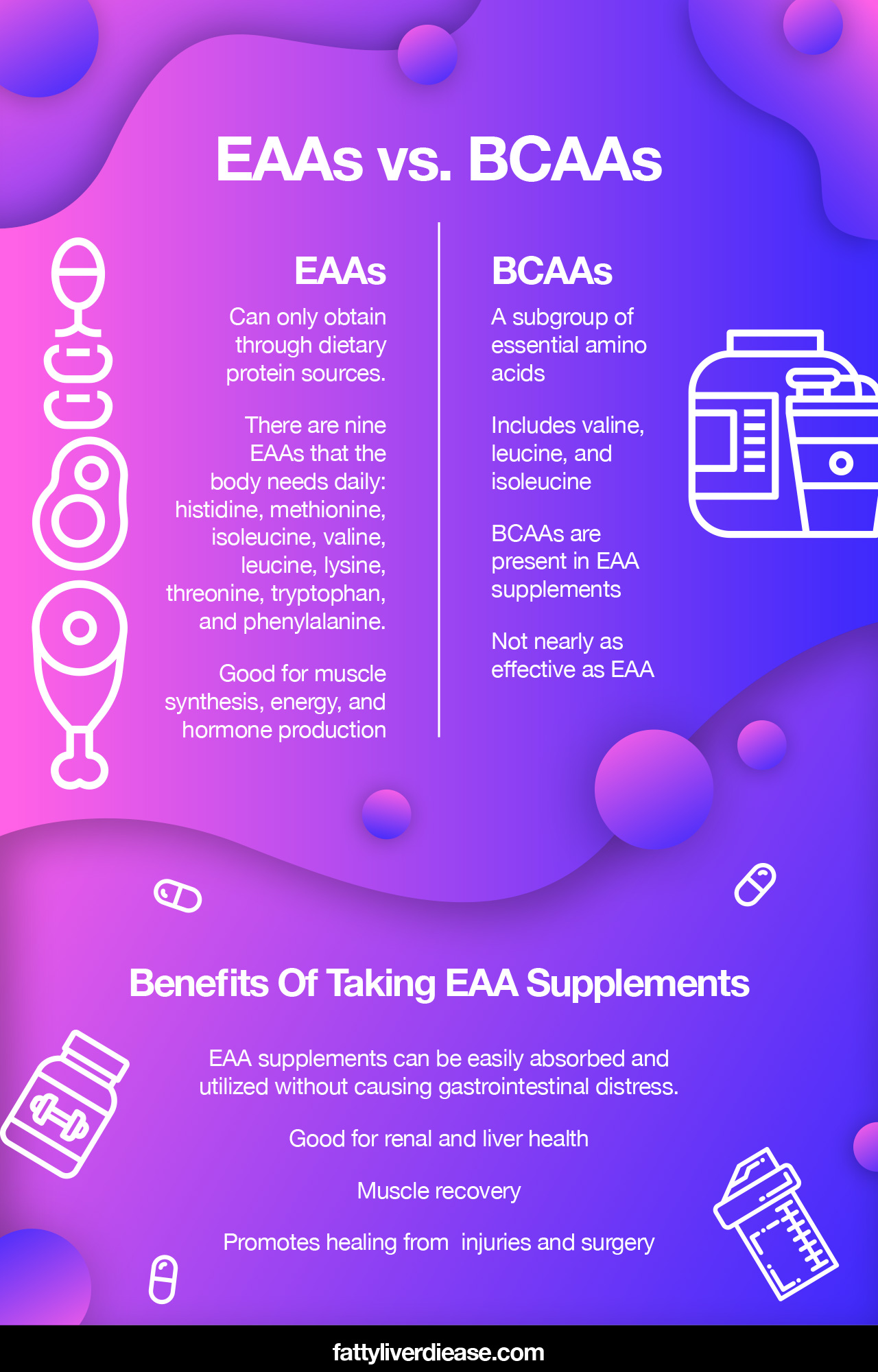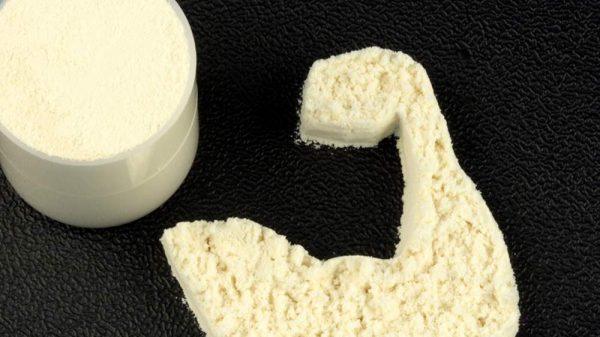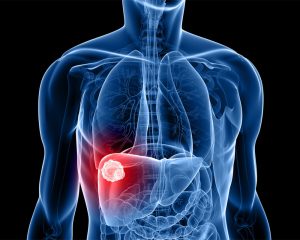Amino acids are growing in popularity as supplements and for a good reason. Amino acids, primarily essential amino acids (EAA) and branched-chain amino acids (BCAA), are vital compounds in the body used in nearly all physiological processes. We couldn’t live without amino acids! So, why is amino acid supplementation useful, and what is the difference between EAA vs BCAA supplements?
Read on to find out everything you need to know about EAA and BCAA and why they are vital for your health.
What Are EAAs and BCAAs?
First, let’s go through what EAA and BCAA are and their roles in the body. Amino acids, in general, are the smallest units that make up protein and are often called the building blocks of protein. When we eat dietary protein sources, the body breaks down whole protein particles into individual amino acids, which are then absorbed through the small intestine. Individual amino acids are then distributed throughout the body for use in a vast array of biological processes.
First, there are two major categories of amino acids that the body requires to function: essential amino acids and nonessential amino acids. Nonessential amino acids are not required from dietary sources, since the body is able to produce them internally through biological processes.
On the other hand, you can only obtain EAAs through dietary protein sources. There are nine EAAs that the body needs on a daily basis: histidine, methionine, isoleucine, valine, leucine, lysine, threonine, tryptophan, and phenylalanine.
BCAAs are a subgroup of essential amino acids that include valine, leucine, and isoleucine. BCAAs get their name from the structure of their side chains, which are carbon chains with a branch-like orientation.
Is EAA Supplementation or BCAA Supplementation Better?
In the sport and fitness world, professionals debate whether EAAs vs BCAAs are better for supporting fitness goals. Some fitness professionals argue that supplementing with BCAA helps stimulate muscle synthesis and muscle growth.
We’re going to settle this debate right here: EAA supplementation is far superior to BCAA supplementation.
In a review published in the Journal of the International Society of Sports Nutrition, lead amino acid researcher Dr. Wolfe sums up exactly why EAA supplements are more effective than BCAA supplements. (1)
EAAs are the best amino acid supplements for numerous reasons. The body requires balanced ratios of essential amino acids to carry out all physiological processes efficiently. If the body is missing one EAA, then this EAA will function as a limiting amino acid. Even if all other eight EAA are available in abundance, the one limiting amino acid will put a hold on physiological processes such as muscle synthesis.
Moreover, because BCAAs are present in EAA supplements, there is no danger that you will miss out on the BCAA that you need. In carefully balanced EAA supplements, you will get the optimal ratio of EAA that your body requires, including BCAA.
EAAs Define Complete Proteins
The EAAs available in protein sources define how complete a protein is. The protein digestibility-corrected amino acid score (PDCAAS) evaluates the balance of EAAs in a protein source, as well as the bioavailability of the EAAs.
A PDCAAS of 1 signifies that the protein source offers complete ratios of essential amino acids, while a score lower than 1 indicates that the protein source is incomplete. Animal proteins like meat, dairy, eggs, and fish have a PDCAAS of 1. Vegetable sources of protein, however, have scores that are lower than 1, indicating that plant-based sources of protein do not provide optimal ratios of EAAs.
What Exactly Is the Role of EAAs in the Body?
Getting balanced ratios of EAA in your daily life can be helpful for numerous processes.
Muscle Synthesis
One of the primary areas that EAAs are helpful is muscle protein synthesis, muscle repair, muscle recovery. The body requires a balance of EAAs to synthesize muscle fibers and facilitate muscle building. EAA supplements are therefore excellent supplements to use in post-workout drinks and shakes, to supply your body with the raw materials it needs to build new, stronger, muscle tissue. In fact, taking EAA supplements may help improve muscle soreness during the recovery period.
Having a healthy body composition with sufficient muscle mass is critical to supporting overall health. Having muscle tissue increases resting metabolic rate, helps you maintain a healthy body weight, takes the strain off your joints and connective tissues, increases mobility, and decreases the risk of injury.
Energy Production
Getting the EAAs that you need on a daily basis is vital for energy production. Amino acids play a key role in metabolic processes in the liver that help transform the foods we eat into energy.
Neurotransmitter Synthesis
EAAs like phenylalanine and tryptophan play an important role in producing neurotransmitters like serotonin. Neurotransmitters are critical molecules that relay messengers between cells in the brain. In particular, serotonin regulates several brain functions, like mood and memory.
Hormone Production
Hormones are often referred to as the messenger molecules in the body. Hormones play a critical role in communicating between body tissues and responding to biochemical and environmental changes.
Why Take EAA Supplements? Isn’t High-Quality Protein Just as Good?
Getting high-quality protein with a high PDCAAS score is important. However, even if you get plenty of protein on a daily basis from high-quality protein sources, you may still benefit from supplementation.
Digestive Disorders
If you suffer from digestive disorders like Crohn’s disease or other inflammatory bowel diseases, your body may have difficulty breaking down full protein particles into their individual amino acids. Taking EAA supplements saves your body the extra energy and provides ideal ratios that your body needs.
Individuals prone to indigestion or who can’t tolerate whey protein and similar protein supplements may benefit from EAA supplements, which don’t require extensive digestion. EAA supplements offer individual amino acids that can be easily absorbed and utilized without causing gastrointestinal distress.
Liver Disease
Individuals with liver diseases like liver fibrosis and liver cirrhosis may benefit greatly from essential amino acid supplements. Because the liver plays a crucial role in metabolism, individuals with liver disease are often unable to process and utilize nutrients properly. As a result, many individuals with liver disease are in a catabolic state, meaning the body breaks down muscle tissue to obtain EAAs for critical physiological processes.
Taking EAA supplements helps provide the EAAs that the body needs to reach an anabolic state, where it can build muscle tissue and have enough EAAs to use for other biological processes. EAAs may help combat muscle wasting symptoms that accompany liver disease.
Kidney Disease
Kidney disease describes a disease state that affects kidney function. The kidneys normally work as a filtering system for the blood and prepare unwanted substances for excretion. If the kidneys aren’t working as they should, they won’t be able to properly filter protein to remain in the bloodstream and protein waste products for excretion.
Processing protein can be an additional strain on the kidneys. For individuals with kidney disease, limiting the ingestion of dietary protein is recommended. Patients with kidney disease may also be encouraged to stick to plant-based protein sources. However, restricting protein intake and consuming only plant-based sources may limit your intake of EAA. A high-quality EAA supplement ensures that individuals with renal disease spare their kidneys of additional stress, while also ensuring that their body has all of the EAAs that it needs to carry out necessary functions.
Faster Recovery After a Workout
Many people add whey protein and casein to their post-workout smoothies. Although whey and casein may offer optimal ratios of essential amino acids, the body must spend time and resources to break down whole whey and casein particles into individual amino acids. If you’re looking for a faster recovery process, try adding essential amino acid powder to your post-workout smoothies instead of protein powder. Your body will have access to the raw materials it needs to repair muscle fibers.
Recover from Injury and Surgery
EAAs are not only crucial for repairing muscle tissue but also healing from injuries and surgeries. The immune system requires an abundance of EAAs to use as raw materials to heal and rebuild connective tissue, muscle, and skin. In fact, the body needs much more EAAs when recovering from injury than under normal circumstances. When the body is under stress, the body’s utilization of protein increases significantly.
Trying to increase your consumption of dietary protein while recovering from surgery can be taxing on the body. In fact, increasing your consumption of food at all following certain surgeries would be harmful. This is especially the case for individuals who have undergone surgeries like gastric bypass or weight loss surgery. When the stomach has undergone surgery, it is unable to handle large quantities of food or difficult-to-digest protein, especially during the recovery period. During this time, supplementing with EAAs can ensure that you’re meeting your protein needs while supporting digestive health.
Things to Keep in Mind
Before you start new supplements, it’s always best to consult your doctor and ensure that your nutrition and supplement regimen supports your needs.
EAA vs BCAA: Conclusion
EAAs are nutritionally required amino acids, and BCAAs are a subgroup of EAA. While BCAA supplementation is popular, it is not nearly as effective as EAA. Getting a balanced ratio of all EAAs is more effective than supplements in just one subgroup of EAAs. All EAAs are required for optimal physiological function, including metabolism, immune system function, and processes that produce muscle tissue, neurotransmitters, hormones, enzymes, and other protein-based molecules. When you are deciding which amino acid supplements to take, it’s important to consider your health conditions and goals.

References:























